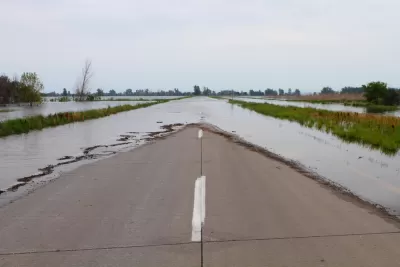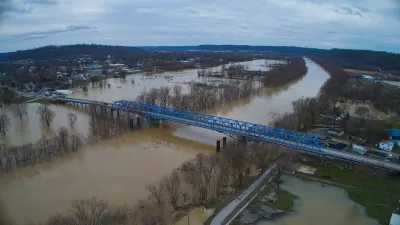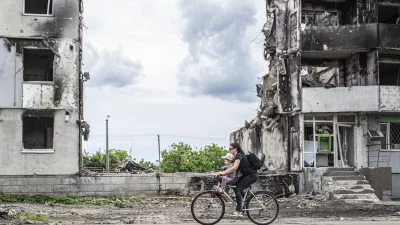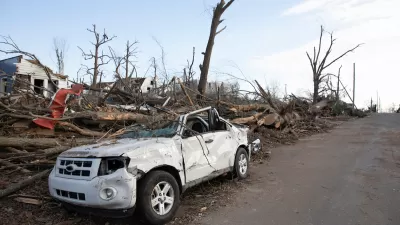Tight applications prevented many communities struck by disasters from applying for FEMA resilience grants, so the agency issued a new rule that extended the application window.

“U.S. communities recovering from major natural disasters now have more time to apply for a resilience-focused grant program the Federal Emergency Management Agency offers in the wake of such events,” according to a Smart City Dive article by Ysabelle Kempe. In August, FEMA published a final rule extending the application window for the Hazard Mitigation Grant Program from 12 months to 15 months, as well as the extension window from 180 days to 240 days. It will also allow FEMA to reopen closed application periods in certain cases, something that wasn’t previously possible.
State, local, tribal, and territorial governments that have experienced a federally declared major disaster are eligible to apply for the program, which provides support both to rebuild and mitigate future disaster impacts. “However, nearly 20% of the funds available through the program are left on the table, Victoria Salinas, FEMA’s associate administrator for resilience, wrote in an Aug. 15 LinkedIn post. She attributed the problem to the challenges posed by deadlines and how extensions were made,” Kempe reports. In addition to making it more feasible for governments to apply, the deadline extension is expected to reduce extension requests, which will reduce the administrative burdens for both the communities and the agency.
“The change is ‘a great example of an agency making small tweaks to a program based on stakeholder input’ and a move in the right direction, Melissa Roberts, founder and executive director of the American Flood Coalition, wrote in an Aug. 15 LinkedIn post,” according to the Smart Cities Dive article.
FULL STORY: Disaster-struck communities now have more time to apply for FEMA resilience grants

Alabama: Trump Terminates Settlements for Black Communities Harmed By Raw Sewage
Trump deemed the landmark civil rights agreement “illegal DEI and environmental justice policy.”

Study: Maui’s Plan to Convert Vacation Rentals to Long-Term Housing Could Cause Nearly $1 Billion Economic Loss
The plan would reduce visitor accommodation by 25% resulting in 1,900 jobs lost.

Planetizen Federal Action Tracker
A weekly monitor of how Trump’s orders and actions are impacting planners and planning in America.

Wind Energy on the Rise Despite Federal Policy Reversal
The Trump administration is revoking federal support for renewable energy, but demand for new projects continues unabated.

Passengers Flock to Caltrain After Electrification
The new electric trains are running faster and more reliably, leading to strong ridership growth on the Bay Area rail system.

Texas Churches Rally Behind ‘Yes in God’s Back Yard’ Legislation
Religious leaders want the state to reduce zoning regulations to streamline leasing church-owned land to housing developers.
Urban Design for Planners 1: Software Tools
This six-course series explores essential urban design concepts using open source software and equips planners with the tools they need to participate fully in the urban design process.
Planning for Universal Design
Learn the tools for implementing Universal Design in planning regulations.
Caltrans
Smith Gee Studio
Institute for Housing and Urban Development Studies (IHS)
City of Grandview
Harvard GSD Executive Education
Toledo-Lucas County Plan Commissions
Salt Lake City
NYU Wagner Graduate School of Public Service





























